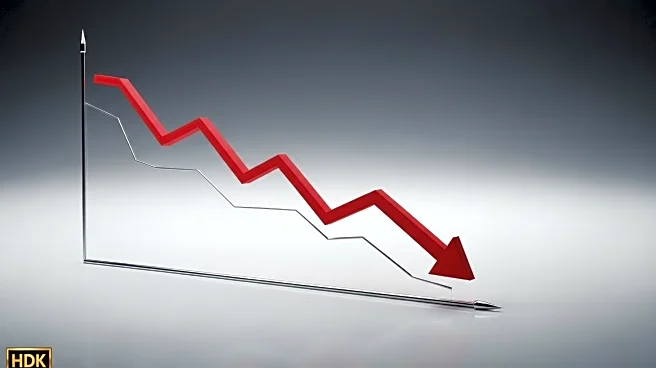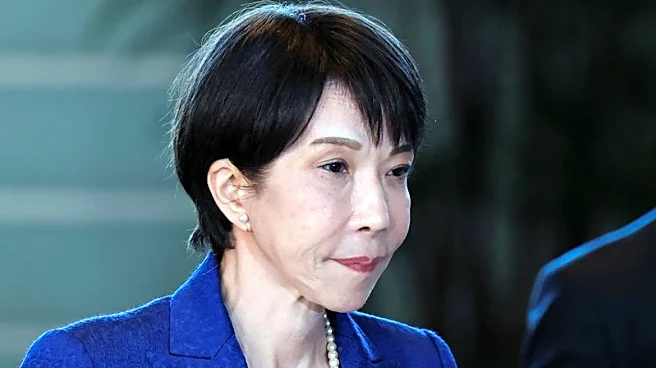What's Happening?
Bangladesh's Purchasing Managers' Index (PMI) fell by 3.2 points in August to 58.3, indicating a slower economic expansion. This decline was driven by weaker performances in manufacturing and services, while agriculture and construction sectors slipped back into contraction. The report, released by the Metropolitan Chamber of Commerce and Industry (MCCI) and Policy Exchange Bangladesh (PEB), highlights that despite 11 consecutive months of economic growth, the pace has slowed. Agriculture ended a 10-month growth streak due to reduced new business and lower activity, while construction faced job losses for the fourth month. Manufacturing and services continued to expand, albeit at slower rates, with new orders and exports rising but employment contracting.
Why It's Important?
The PMI is a critical indicator of economic health, and its decline suggests potential challenges for Bangladesh's economy. The slower growth in key sectors like manufacturing and services could impact employment and export earnings, crucial for the country's economic stability. The contraction in agriculture and construction further underscores vulnerabilities, particularly in the face of prolonged monsoon disruptions. These trends may affect investor confidence and policy decisions, as the government and businesses navigate rising costs and political instability. The report's insights are vital for stakeholders to strategize and mitigate potential economic slowdowns.
What's Next?
Future business expectations have weakened in agriculture, manufacturing, and construction, though the services sector remains optimistic. Stakeholders may need to address political instability and rising costs to sustain growth. The government and businesses might focus on enhancing resilience in agriculture and construction, while leveraging strengths in services to drive economic recovery. Monitoring PMI trends will be crucial for adjusting strategies and ensuring sustainable growth.










